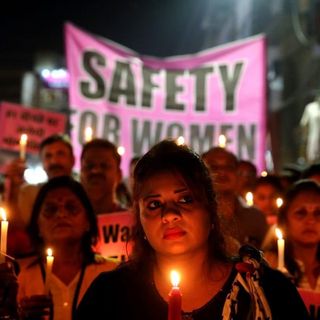The full extent of the damage caused by manmade climate change is only just unfolding, but we all quietly agree (mostly) that the planet handed over to the Millennials and Generation Z is a deteriorating one. However, according to new research, climate change may also be harming the generation yet to be born.
Rising temperatures as a result of global warming (which spurs on extreme weather) are shortening the gestational time in pregnant women — that is, more children are being born premature, according to a major new study published in Nature Climate Change. (The average gestation period for a pregnancy carried to full-term is 40 weeks; babies born at 37 weeks or earlier are considered premature.)
Why high temperatures lead to premature births is still under scrutiny by the scientific community. One theory is that the hotter it gets, the more dehydrated people get. When you’re dehydrated, the body releases the hormone oxytocin, which also plays a crucial role in labor and lactation. Another theory is that heat leads to cardiovascular stress in the mother, which induces labor early. A third reason, Alan Barecca, the study’s author and an associate professor of environmental economics at the University of California, Los Angeles, told TIME, could be loss of sleep due to high temperatures — “an important avenue to early birth.” It’s important to note that the study did not find causation, only correlation, between high temperatures and early birth.
Given how the Earth has been witnessing more intense and prolonged heatwaves — which have been linked to manmade climate change — Barecca and co-author Jessamyn Schaller, an economist at Claremont McKenna College, California, set out to study whether pregnancies were also significantly affected as a result.
To do this, they looked at 56 million births between 1969 and 1988. The data is admittedly dated, but the researchers had little choice. “In 1989, the vital statistics system started to be more cautious about information it allowed out publicly in order to make it hard to identify individuals precisely by place or date of birth,” Barreca told TIME magazine. “They even began masking some counties. So 1969 to 1988 gave us the most thorough information.”
Barreca and Schaller found that when temperatures reached or exceeded 90º F, or roughly 32º C, in a U.S. county, the birth rate per 100,000 women increased by 0.97, as compared to dates in which the temperature ranged between 60º to 70º F (16-21º C). Significantly, two days after the heatwave, when it was hot but not scorching hot, the birth rate increased by 0.57.
“The subtlety of our research is that we also looked after the heatwave to see if there was a drop in birth, and that tells you how much earlier the births occurred,” Barecca told Salon. The researchers estimate that 25,000 infants per year were born earlier as a result of their mothers’ exposure to heat, which corresponds to a loss of 150,000 gestational days each year.
Related on The Swaddle:
Is Not Having Children the Answer to Climate Change?
This is the most comprehensive investigation of the link between temperature and gestation to date, and its conclusions point to a larger public health issue in the making since premature babies are more likely to suffer from health and developmental problems later in life, such as lower birth weight, respiratory problems, and cognitive disabilities.
The period the researchers studied — from 1969 to 1988 — was only the beginning of the severe heat spikes caused by climate change. The most recent decade was the hottest ever since scientists began keeping records, and things are only going to get worse. According to a recent Economic Times report, the average number of extremely hot days around the country, presently defined as over 35º C, are likely to increase by more than eight times per year and reach 42.8º C by the end of the century. By then, Barreca and Schaller estimate, women will have suffered a loss of 250,000 days of gestation per year, with a massive domino-effect on infant health.




